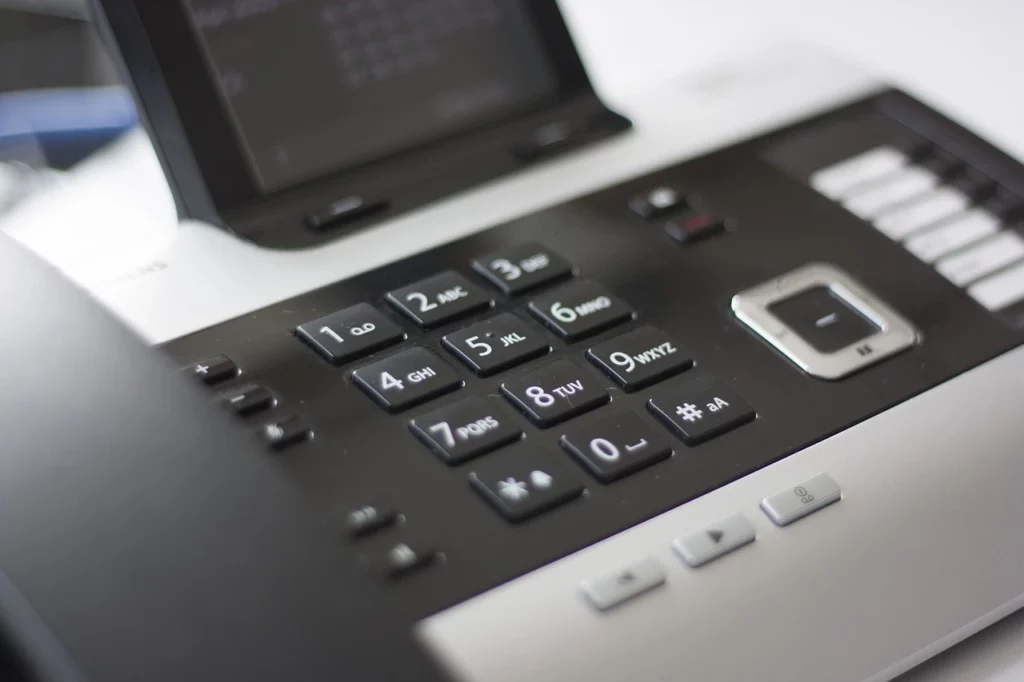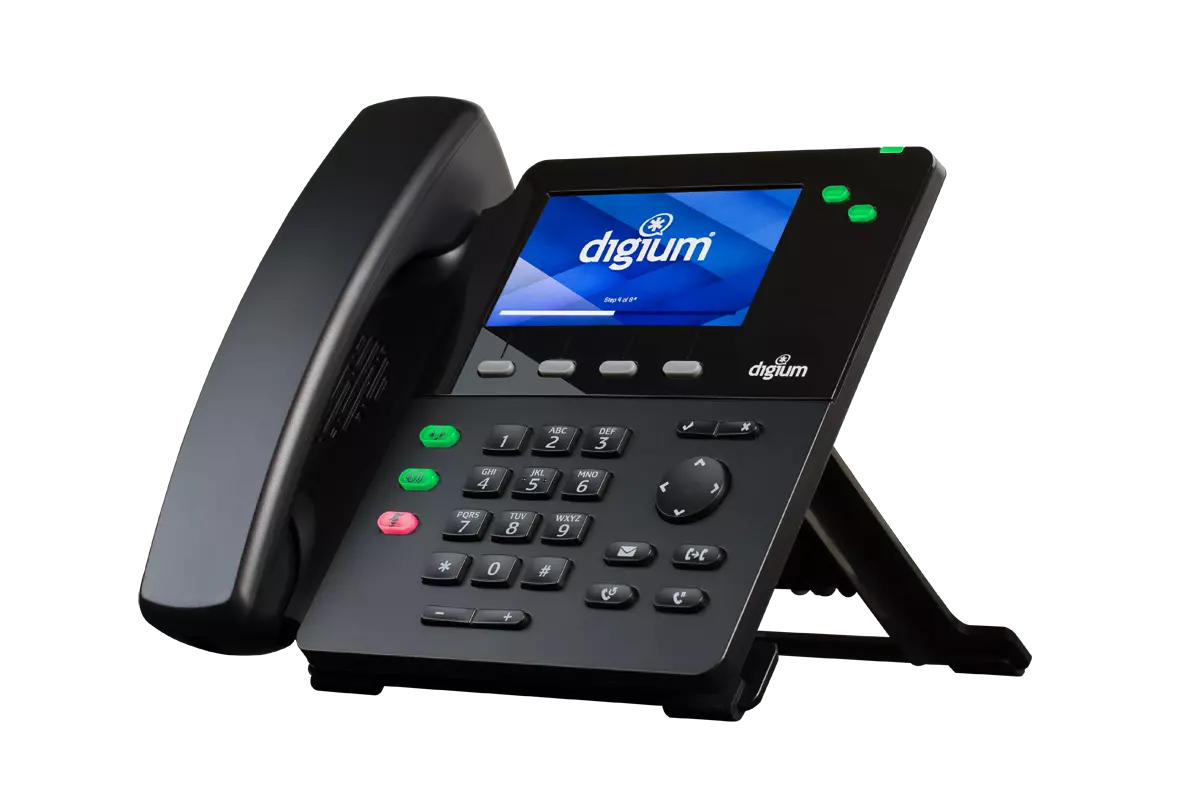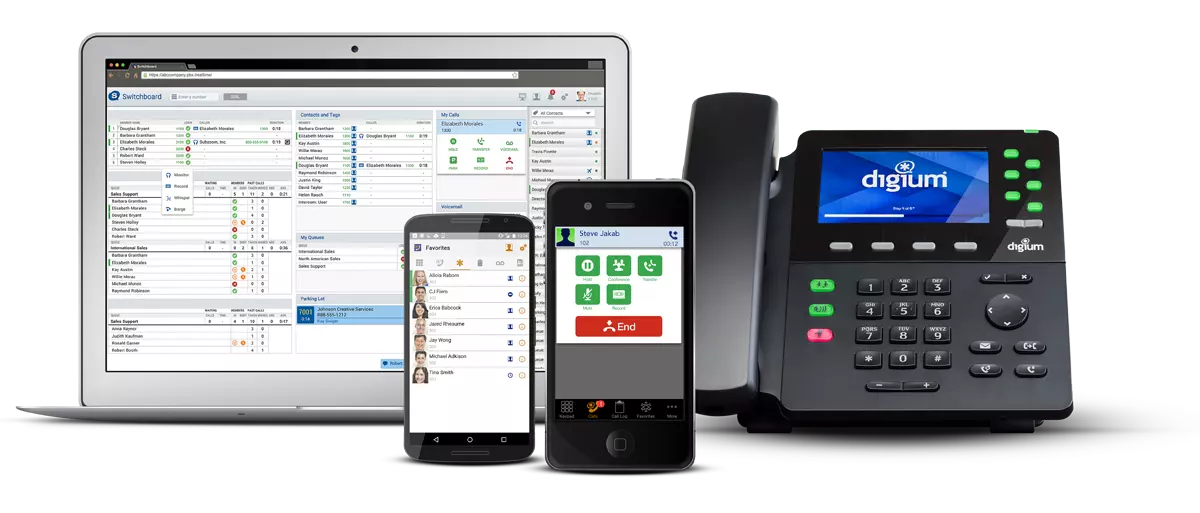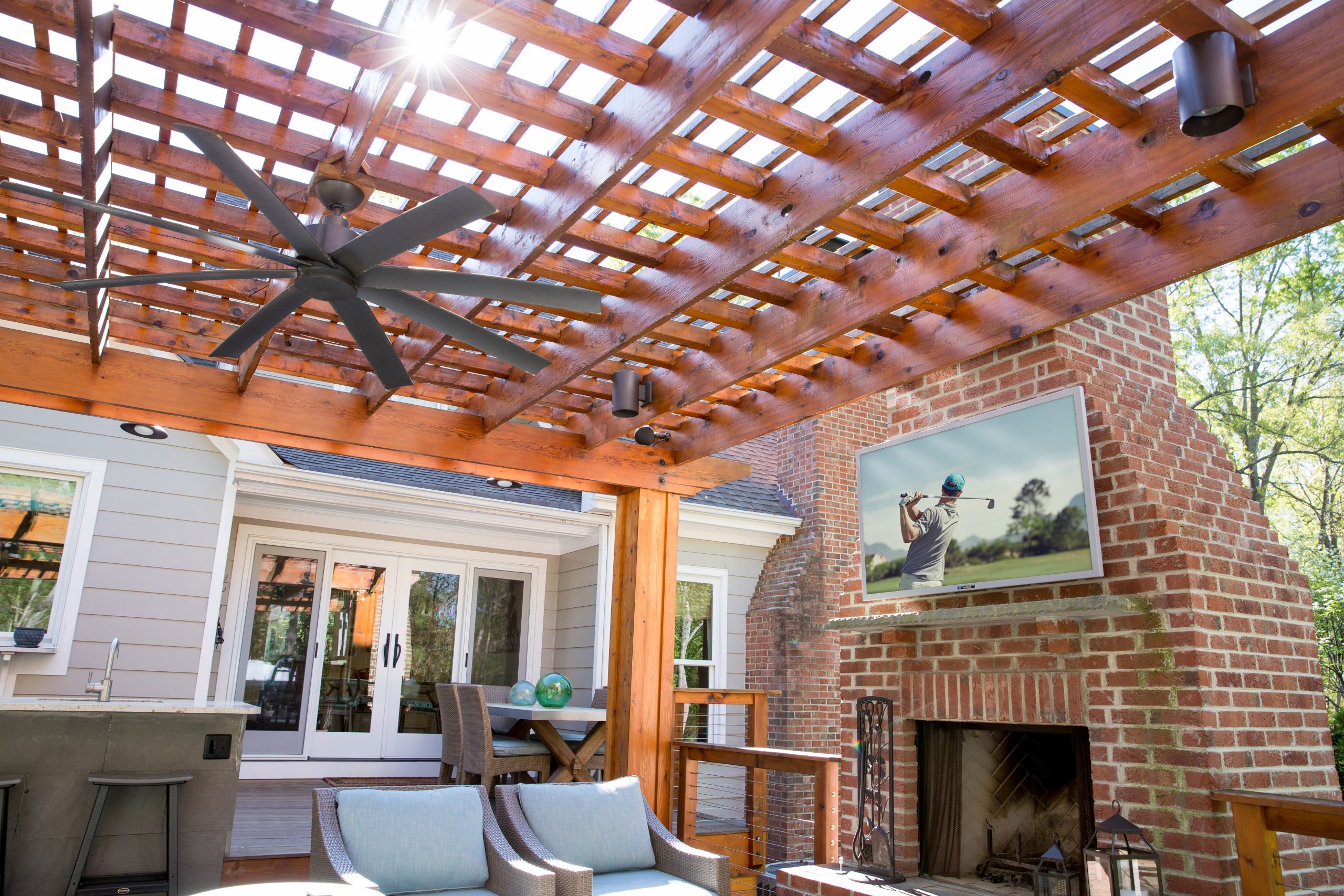New Year Resolutions: Support Your Local Technology Service Provider
Best PBX Business Phone Systems in NJ
Private Box Exchange (PBX) technology has revolutionized business phone systems. Businesses of all sizes in New Jersey have embraced PBX for its many benefits, including cost savings, flexibility, and features.
While PBX offers many advantages over traditional business phone systems, it’s important to partner with a reliable and experienced PBX provider. At Ashcor Technologies, we understand the unique needs of businesses in New Jersey and offer PBX solutions that are tailored to each business’s specific requirements.
We offer a wide range of features and options that can be customized to meet the individual needs of your business. To learn more about our PBX Business phone solutions and how they can benefit your business, contact us today.

The Different Types of PBX Business Phone Systems
There are a few different types of PBX business phone systems out there. Here in NJ, we have a few options when it comes to these types of systems.
First, we have the on-premise PBX system. This is the traditional type of system that is physically installed at your business location. With this type of system, you’ll have full control over the features and functionality. However, it does require a higher upfront investment and ongoing maintenance costs as well as physical space for the equipment.
Next, we have the hosted or cloud-based PBX system. This type of system is becoming more popular as it eliminates the need for on-premise hardware. Instead, all of the PBX features and functions are hosted off-site by the service provider. This can save you money on upfront costs and simplify your IT infrastructure.
Finally, we have the hybrid PBX system which combines both on-premise and hosted components. This gives you the best of both worlds – the flexibility and cost savings of a hosted system with the control and customization of an on-premise system.
So, which type of PBX business phone system is right for you? It depends on your specific needs and budget. Talk to one of our knowledgeable representatives here at Ashcor Technologies to find out which option would be best for your business!
The Pros and Cons of PBX Business Phone Systems
As your business grows, you will likely need to upgrade your phone system. One option is a PBX business phone system which routes calls through a central server. It offers many features and can be customized to meet the needs of your business. However, they can also be expensive and may require more maintenance than other types of phone systems.
Pros:
- Scalability. They can easily be expanded to accommodate more users as your business grows.
- Wide range of features: PBX offers features like caller ID, call forwarding, voicemail, and conference calling.
- Customization. PBX systems can be customized to meet the specific needs of your business.
- Reliability. PBX systems are typically very reliable and offer good call quality.
Cons:
- Expense: If you don’t select a trust-worthy PBX provider, you can find yourself with overly expensive installation and monthly maintenance fees.
- Technical Expertise. PBX systems may require more technical expertise than other types of phone systems to keep them running smoothly.
Because there are a few aspects of a PBX system that can become pain points for a New Jersey business, it’s incredibly important to hire a reliable, trustworthy and knowledgable PBX provider like Ashcor Technologies.
Conclusion
When it comes to business phone systems in NJ, there is no one-size-fits-all solution. The type of PBX system you choose will depend on the size and needs of your business. However, with so many different options on the market, it can be tough to know where to start. Give Ashcor Technologies a call today and one of our phone system experts will help you narrow down your choices and find the perfect system for your business.
Why Small Businesses Should Choose Private Box Exchange Phone systems
Why Small Businesses Should Choose Private Box Exchange Phone systems
In the world of business, first impressions are everything. You want your customers to have a good experience from the start, which is why it’s important to have a reliable phone system.
A private box exchange (PBX) is a phone system that is installed in your office and allows you to have complete control over your company’s incoming and outgoing calls. PBX systems are becoming more popular for small businesses because they are more affordable than traditional phone systems and offer a wide range of features that can be customized to your business needs, and as your business grows.
In this article we will explore the benefits of using a PBX system for your small business, the questions you should ask when assessing a PBX system and why you should consider making the switch.

Private Box Exchange (PBX) Phone System vs Traditional Phone System
A Private Box Exchange (PBX) is a telephone system used by businesses and organizations that manages the routing and advanced calling features of multiple inbound and outbound calls. It can be used to connect two or more locations within the same company, or it can be used by multiple companies sharing the same building. This type of phone system is different from the public switched telephone network (PSTN), which is the network that most people use for their personal phone lines.
The main advantage of using a PBX phone system is that it can save your business money. With a PBX, you can have multiple phone lines coming into your office, but you only need to pay for the one line that comes into your PBX. This is because the PBX handles all of the calls internally.
Another advantage of using a PBX is that it gives you more control over your phone calls. With a PSTN, all of your calls are routed through the public network and you have no way to block unwanted calls or add features like caller ID blocking. However, with a PBX, you can add these features and more.
If you are considering switching to a PBX phone system for your business, there are a few things to keep in mind. There are a few different types of PBX phone systems available, so understanding the differences and how it impacts your business is important before making a decision.
The Different Types of Private Box Exchange Phone Systems
The most common type of PBX is an analog PBX, which uses a central control unit to connect calls between extensions. Analog PBXs are typically less expensive than their digital counterparts, but they do not offer as many features or scalability options.
Digital PBXs use digital technology to connect calls between extensions and offer a wide range of features, including voicemail, call forwarding, and caller ID. Digital PBXs are more expensive than analog PBXs but are much more scalable and offer many more features.
VoIP PBXs use Voice over IP (VoIP) technology to route calls over the internet instead of using traditional phone lines. VoIP PBXs offer all the features of digital PBXs and can be even more scalable since they do not require physical phone lines. VoIP PBXs are usually the most expensive type of PBX but are worth the investment for businesses that need a highly scalable solution with all the latest features.
The Benefits of a PBX Phone System for Small Businesses
If you are looking for a phone system for your business, then you should definitely consider a PBX system. The benefits far outweigh the cost, and you will be able to take advantage of all the latest features that PBX systems have to offer.
When you’re ready to install a PBX system, there are a few things you need to decide on:
- Determine how many lines you will need.
- List out the features you want your PBX system to have.
- Find a reputable company that sells and installs PBX systems in NJ.
How to Choose the Right PBX Phone System for Your Business
There are a few PBX phone system features that small businesses should keep in mind when choosing a system.
- How many lines does the system support?
- Does the system have an automated attendant? This can be helpful for businesses that have customers calling from different time zones or who need to be able to accept calls after hours.
- Does the system offer call forwarding and voicemail? These features are important for businesses that need to be able to manage their calls even when they are not in the office.
- Is the PBX phone system compatible with your existing telephone equipment?
The Best Choice of Phone Systems for Your NJ Business is Clear!
Choosing the right phone system for your small business is essential. A private box exchange phone system can offer many benefits, including increased security, lower costs, scalability, and more flexibility. If you’re looking for a phone system that will meet your needs and help your business grow, a private box exchange phone system is definitely worth considering.
Get a Private Box Exchange Phone System Quote for Your Business
If you’d like to learn more or discuss a quote for your company, contact Ashcor Technologies today.
Phone System Calendar How-To
How to change your phone system’s call routing schedule using calendars.
Small & Medium Business Phone Systems: There is a good solution
About a decade ago, while providing IT support for one of our long time small business clients, we received a desperate call for help. Their existing phone system had stopped working and after a day and a half they were getting nowhere with the system vendor’s tech support. It seems the system vendor was pointing the finger at the phone service provider and the service provider was claiming there was nothing wrong with the service. A typical “not my problem” stalemate.
We took a look at the situation and quickly determined that it was indeed the system vendor at fault but after another half day of dealing with their tech support and getting nowhere, we had to figure something else out.
We managed to get all the lines forwarded to the owner and manager’s cell phones as a stop gap and then two days later had a brand new phone system and service in place, all run by Ashcor Technologies. The bonus being that we were able to cut their monthly cost by a few hundred dollars while providing new modern features that improved the office efficiency. Because Ashcor Technologies was now responsible for both the system and the service, we could guaranty an end to the “not my problem” finger pointing tech support nightmare.
Sadly, this situation is not unique. One of the biggest pain points for small and medium business owners is their phone system and service. They tend to either be completely out dated, expensive to fix (if you can even find someone willing and able to do it), difficult or impossible to modify and attached to very expensive legacy service or, cheap, inefficient and totally DIY.
In either case, the phone system is that monster lurking in the closet that as long as it stays there, nobody is willing to deal with. The problem is that eventually that monster, suffering from neglect and loneliness, will throw a temper tantrum and bring your business’s main connection to the world to a grinding halt.
Given the traditional complexity of the systems and service options available, the myriad of incomprehensible technical lingo and the cost typically involved, business owners and managers can hardly be blamed for putting the task of dealing with their phone systems on the back burner and leaving it there indefinitely.
The problem is, businesses still using old analog copper POTS lines are paying extremely high rates for outdated technology. If they have more than one location they are doing this at each one potentially costing the business thousands of dollars a year.
While less expensive Internet based phone systems and service have existed for some time, the complexity and fear of converting to a new technology often prevents business owners and managers from making that leap. For the brave one’s that do the choices are usually between mainly DIY online systems where they are charged a-la-carte for every feature and are responsible for supporting themselves or, turning to the local cable company and the systems and service they offer. While the cable companies do provide hosted systems they tend to have all the service efficiency of… well… cable companies.
So what makes Ashcor Technologies solution different? Simply put, our purpose isn’t to just provide our clients with a phone system and service, it’s to eliminate the headache of owning such a system. We approach each system design from a holistic view of your entire business to ensure the final system fits not only your basic communication needs but also enhances the efficiency of your entire operation.
Once installed, we charge a single flat monthly rate for the system and service. We maintain the system every week, installing system updates, configuration backups and making any configuration changes requested. Should you wish to manage aspects of the system yourself we’re more than happy to give that access to you and train your staff. In addition, as we get to know your business more and more we can offer more features we think will help enhance your efficiency, often for no additional cost.
Does your business have multiple locations or employees who work remotely? If so why not merge all of these separate locations into a single unified communication system that cuts costs and improves efficiency. Ashcor Technologies can do that for you too. If you still find yourself whistling past the graveyard of your existing phone system while paying hundreds of dollars a month for outdated, unhelpful and inefficient service, give us a call and find out just how easy, efficient and inexpensive your business phone system can be.
Video Conferencing: An Alternative to Big Tech Censorship and Privacy Concerns
Video Conferencing: An Alternative to Big Tech Censorship and Privacy Concerns
As the Covid-19 pandemic took hold in February and March of 2020, corporations, schools and organizations worldwide scrambled to find a way to continue in-person communications without being…. In person. Seizing on the opportunity the pandemic presented, Zoom, a video conferencing solution provider quickly stepped to the forefront as the go-to solution for many.
The service quickly ran into issues however as reports of school classroom and corporate video conferencing sessions being “zoom-bombed” by unwanted participants and questions arose about the security of including personal information of minors in the zoom accounts that each participant needs to create in order to use the service (https://www.forbes.com/sites/kateoflahertyuk/2020/03/27/beware-zoom-users-heres-how-people-can-zoom-bomb-your-chat/#65ec5516618e).
In April Zoom’s servers were hacked and over 500,000 usernames and passwords were stolen and published on the dark web (https://www.forbes.com/sites/daveywinder/2020/04/28/zoom-gets-stuffed-heres-how-hackers-got-hold-of-500000-passwords/#4ca910925cdc).
Most recently a bi-partisan US Senate committee began investigating Zoom’s ties to the CCP after Zoom suspended the accounts of 3 users, one in China and two in the US after receiving pressure from the Chinese government to censor their commemoration of the Tiananmen Square massacre (https://www.reuters.com/article/us-zoom-video-commn-privacy/us-lawmakers-ask-zoom-to-clarify-china-ties-after-it-suspends-accounts-idUSKBN23I3GP#:~:text=Zoom%20said%20on%20Friday%20it,affect%20users%20outside%20the%20country).
Unfortunately, these issues of security and censorship are not limited to Zoom but seem to plague nearly all the tech giants that provide the world’s online communications solutions. Fortunately, there are alternatives. The Open Source community has developed many alternatives and indeed many commercially available products had their start in the Open Source world. The issue with using Open Source solutions has always been that they can be technically challenging to implement and must be self-supported.
The benefit of using an Open Source solution is that you are completely in control of the services they offer, the security implemented and of course the cost (most are totally free to use). Because of these benefits, early on Ashcor Technologies began offering Open Source based solutions to our small business customers. This enables us to provide big business capabilities at price points that were accessible to the small and medium business markets. Ashcor installs configures and maintains the systems for our clients and charges a small fee for the service.
As the pandemic broke and area wide lockdowns were implemented the need for an easy to use, private and secure video conferencing solution rushed to the forefront of our customers’ requirements. Ashcor Technologies once again turned to the Open Source community and created the Ashcor VidConf solution based on the Jitsi Open Source project.
Leveraging the Jitsi project we were able to create a custom branded, private, and secure video conferencing service for our clients. Each implementation of the VidConf service runs on its own private cloud server, is custom branded with the client’s name and graphics and requires no accounts to be created by its participants. Administrator accounts are created for those responsible for creating and managing meetings however no personal information is stored on the server.
Just like the big tech solutions the Ashcor VidConf service offers on the fly meeting creation, open or password protected meetings, screen sharing, YouTube video sharing, YouTube streaming of meetings, in meeting group and private messaging and admin control of participants audio.
Unlike the big tech solutions, the Ashcor VidConf service doesn’t charge per session or per admin account fees or limit the number of simultaneous sessions. We don’t have access to your participant’s private information and neither do your employees. Further, we’ll never sensor your content as the server is yours and not subject to the political whims of any corporation or government. If video conferencing is now a part of your organization and you have concerns about privacy, the potential for censorship and the cost and limitations of other commercially available solutions, contact us for a free demo of our VidConf solution. Your communication should be long to you.
Choosing the proper TV for outdoors
Outdoor family living spaces are becoming more and more popular these days and what living space is complete without a television to gather around?
Outdoor living space configurations range from completely open to fully covered or enclosed and any combination in between. Some are close to or adjacent to the main house and others are separate.
When it comes to choosing the right TV for your outdoor living space there are several factors about the space that need to be considered such as exposure to the elements, direction of the sun in relation to the television, location of the cable box and other sources, sound and control methods.
In general, there are two basic ways to go with regards to the actual TV selection. You can either spend thousands of dollars on a true outdoor TV that is enclosed in a weather proof case, generally has a brighter screen and can be left out all year long, or go to the other end of the price spectrum and install the cheapest TV you can find for a few hundred dollars knowing that it may need to be replaced after a season or two if not carefully cared for, and may not be watchable in bright daylight.
The benefits of a true outdoor TV is that you don’t have to worry about it being destroyed by the rain, snow, direct sunlight or a misguided soccer ball. They usually come with an outdoor rated remote control and can be watched in direct sunlight. The downside to this type of TV is of course the price and added weight of the weatherproof case. You can expect to pay roughly $2500 and up for a 50” HD outdoor TV. If you’ll be installing the TV in a location with absolutely no shelter and times of direct sunlight, this would really be the only choice.
Conversely, going the super cheap route with the understanding that by installing an indoor TV outside you are voiding any warranty and you may have to replace the TV if someone forgets to put the cover on it during inclement weather, may be a viable option for partially or better sheltered locations. At around $300 for a cheap 4K 50” you can afford to replace it about 8 times before hitting the price point of a proper outdoor TV. If the TV will not be in direct sunlight and you’ll be doing most of your watching in the early morning, late afternoon or evening, this works well for many situations. You will have to buy a cover for the TV to put on it when not in use, but these are easily sourced and inexpensive.
Once you’ve selected the proper TV for your installation, it’s time to consider what sources you’d like to have and where the devices (cable box, AppleTV, RoKu, Bluray etc) will be kept. Indoors it’s easy to just place the devices under the TV or somewhere in the same room. Outdoors this generally isn’t the case. This means you’ll need to have some additional equipment and wiring installed to get the source signal to the TV location and the remote-control signal back to the components.
This can add several hundred to thousands of dollars to the project so be prepared. There are several HDBaseT devices on the market that can send an HDMI signal from a source device up to 300 feet over Category cable to the TV and bring the remote-control signal from the TV location back to the source components.
Depending on the TV install location, running the cabling and installing the hardware may require additional construction and or excavation to run the cables properly and safely. Electric will also need to be installed at the location.
Sound from the TV is another consideration. Unlike sitting in your living room with walls and a ceiling that reflect and bounce the sound around, in outdoor spaces the sound from the speakers built into the TV often has nothing to reflect off of and therefore may be hard to hear at normal volume levels. Installing an outdoor rated sound bar or tying the TV sound into an existing outdoor speaker system may be necessary to truly enjoy the experience. This again can add at least a few hundred dollars to the overall project cost. We’ve briefly touched on some of the challenges, choices and costs that need to be considered when adding a TV to your outdoor living space. While this can be a DIY project it’s not one for the faint of heart and the potential pitfalls are numerous for those not experienced enough to spot them. In addition, it may require several different contractors including carpenters, masons, electricians and AV specialist to complete.
If you’re thinking of enhancing your outdoor living space with a TV or other entertainment tech, give us a call and we’ll come out and give you a free consultation and estimate.









